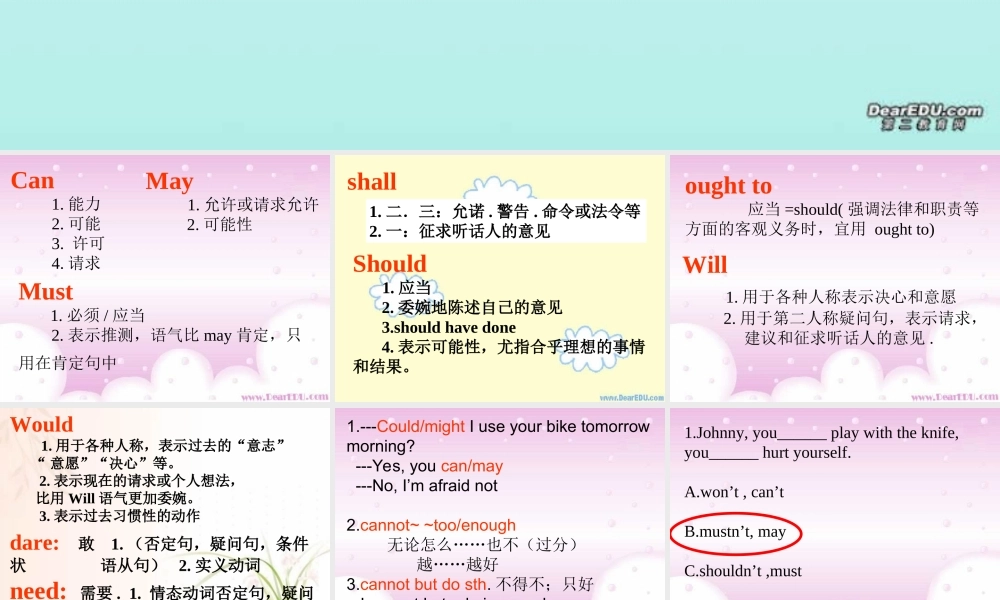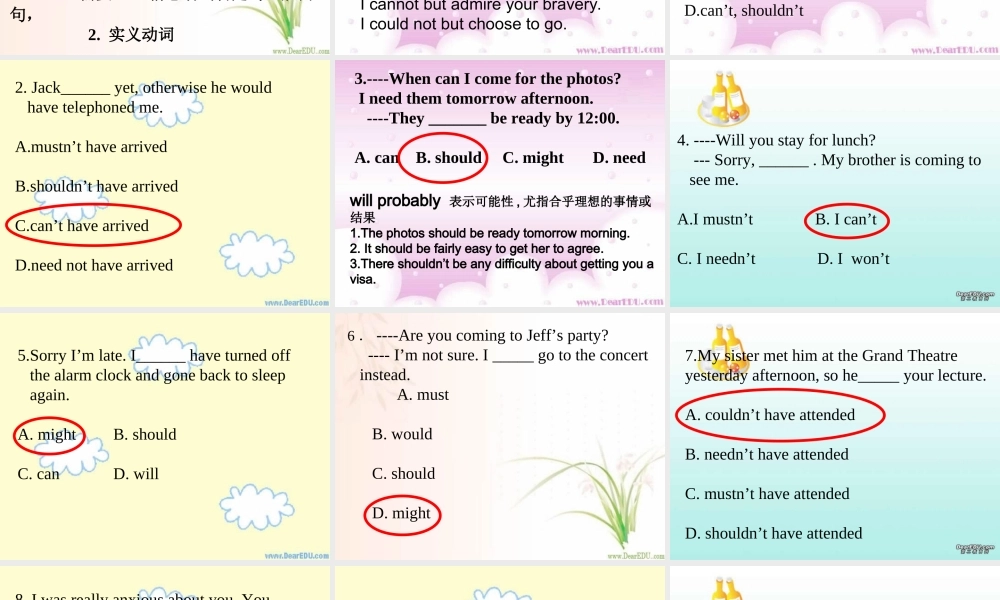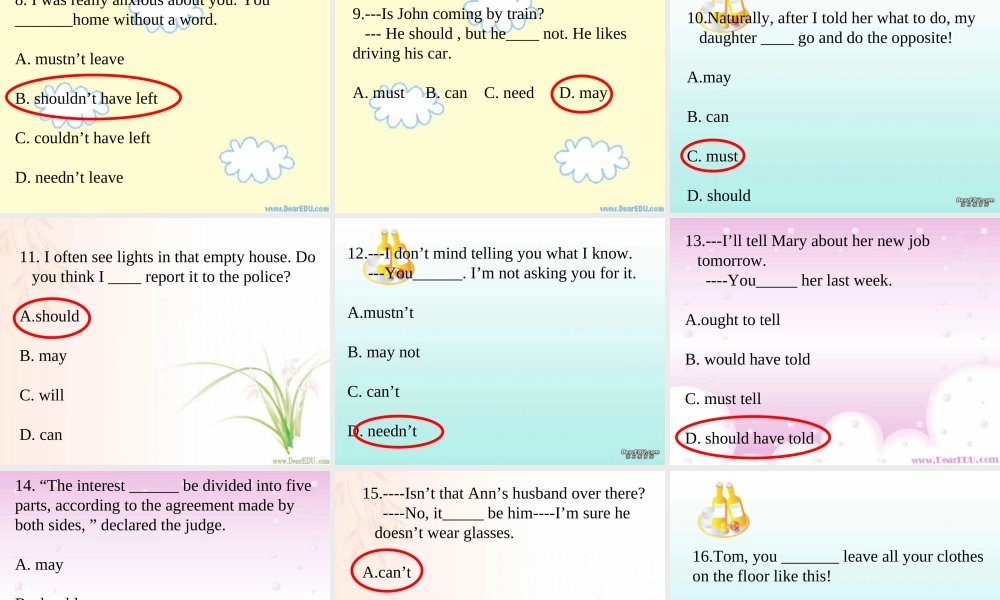情 态 动 词Can 1. 能力 2. 可能 3. 许可 4. 请求May 1. 允许或请求允许 2. 可能性Must 1. 必须 / 应当 2. 表示推测,语气比 may 肯定,只用在肯定句中 1. 二.三:允诺 . 警告 . 命令或法令等2. 一:征求听话人的意见shallShould 1. 应当 2. 委婉地陈述自己的意见 3.should have done 4. 表示可能性,尤指合乎理想的事情和结果。ought to 应当 =should( 强调法律和职责等方面的客观义务时,宜用 ought to)Will 1. 用于各种人称表示决心和意愿 2. 用于第二人称疑问句,表示请求, 建议和征求听话人的意见 .Would 1. 用于各种人称,表示过去的“意志” “ 意愿”“决心”等。 2. 表示现在的请求或个人想法, 比用 Will 语气更加委婉。 3. 表示过去习惯性的动作dare: 敢 1. (否定句,疑问句,条件状 语从句) 2. 实义动词need: 需要 . 1. 情态动词否定句,疑问句, 2. 实义动词1.---Could/might I use your bike tomorrow morning? ---Yes, you can/may ---No, I’m afraid not2.cannot~ ~too/enough 无论怎么……也不(过分) 越……越好3.cannot but do sth. 不得不;只好 I cannot but admire your bravery. I could not but choose to go.1.Johnny, you______ play with the knife, you______ hurt yourself.A.won’t , can’t B.mustn’t, mayC.shouldn’t ,mustD.can’t, shouldn’t2. Jack______ yet, otherwise he would have telephoned me.A.mustn’t have arrivedB.shouldn’t have arrivedC.can’t have arrivedD.need not have arrived3.----When can I come for the photos? I need them tomorrow afternoon. ----They _______ be ready by 12:00.A. can B. should C. might D. need will probably 表示可能性 , 尤指合乎理想的事情或结果1.The photos should be ready tomorrow morning.2. It should be fairly easy to get her to agree.3.There shouldn’t be any difficulty about getting you a visa.4. ----Will you stay for lunch? --- Sorry, ______ . My brother is coming to see me.A.I mustn’t B. I can’tC. I needn’t D. I won’t5.Sorry I’m late. I______ have turned off...




